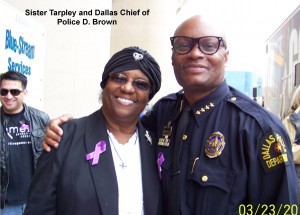 “Your success and happiness lie in you . . . Resolve to keep happy, and your joy and you shall form an invincible host against difficulties.” —Helen Keller.
“Your success and happiness lie in you . . . Resolve to keep happy, and your joy and you shall form an invincible host against difficulties.” —Helen Keller.
“The future belongs to those who believe in the beauty of their dreams.” —Eleanor Roosevelt.
Constance Motley was the first Black woman to be appointed to a federal judgeship in the United States.
Her parents had been emigrants from the Caribbean Island Nevis. Motley’s father was a cook at Yale University and her mother founded the New Haven chapter of the NAACP. This gave Constance Motley both an academic background and an insight into American civil rights.
In 1946 she became the first Black woman to receive a law degree from Columbia Law School. She argued a number of cases at the Supreme Court level winning nine out of ten decisions.
One of Motley’s best known decisions occurred when she helped James Meredith break segregation at the University of Mississippi. Motley decided to enter politics, and in 1964 became the first Black woman to win a seat in the New York State Senate. Her political career was relatively short when, in 1966, she was made a federal judge by President Lyndon B. Johnson.
She was appointed to a Chief Justice in 1982 and then to the role of a Senior Justice in 1986. Motley was presented with a Presidential Citizens Medal by President Clinton in 2001.
Hallie Quinn Brown was a Black educator, writer and activist. Born March 10, 1850 in Pittsburgh, Pennsylvania, one of six children. Her parents Frances Jane Scroggins and Thomas Arthur Brown were freed slaves.
She was a frequent lecturer on Black issues and the temperance movement, speaking at the International Woman’s Christian Temperance Union conference in London in 1895; and representing the United States at the International Congress of Women in London in 1899.
Brown was a founder of the Colored Woman’s League of Washington, D.C., which in 1894 merged into the National Association of Colored Women.
Elizabeth Duncan Koontz served as president of the National Education Association (NEA) in 1968-69 and set as her theme, “A time for Educational Statesmanship.” She called on teachers “to make use of their united power to bring about change.” In her acceptance speech in Dallas, Texas, she further emphasized “that educators … men and women … young and old … Black and White … stand together.”
Born in Salisbury, North Carolina, on June 3, 1919, to Samuel and Lean Duncan, she attended the Salisbury public schools and Livingstone College. Koontz received a Bachelor’s degree in English and elementary education in 1938, and a Master’s degree in elementary education from Atlanta University in 1941.
Koontz pursued additional training in education for the mentally retarded at North Carolina Central University (NCCU). She devoted her entire life to the field of education.
Other firsts for Koontz included being the first North Carolina Teachers Association member appointed to the NEA Commission. In 1968, she was elected president of the NEA, another first for her and for African-Americans.
As NEA president, she outlined a nine-point program for her tenure in which she called for a unified, secure, respected, informed, and socially aware profession; a profession undivided by artificial differences.
During the presidential Administration of Richard M. Nixon, Koontz headed the Women’s Bureau of the Department of Labor and served as a delegate to the United Nations Commission on the Status of Women in 1970.
Jean Blackwell Hutson Born in Sommerfield, FL; daughter of Paul O. and Sarah Myers Blackwell. She earned a B.A. from Barnard College, 1935; M.L.S., Columbia University, 1936; Teacher’s Certificate, Columbia Univ., 1941.
Housed in the Schomburg is a vast collection of manuscripts and artifacts from the Caribbean, America, Europe, and wherever else the slave ships offloaded their tragic cargo. Some items, like lists and diaries from the old Southern plantations, are records of the places Black people once occupied in a world which refused to acknowledge their rights or their talents.
Hutson an official Schomburg curator from 1948-72, built the collection into one of the best resources on Black culture to be found anywhere in the world.








